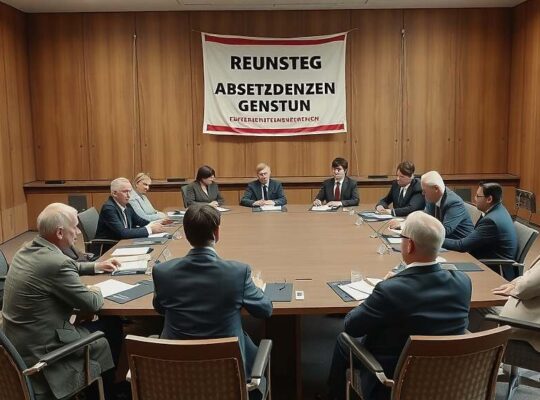The youth wing of Germany’s ruling coalition, the Junge Union (Young Union), is intensifying its opposition to the government’s proposed pension reform package, raising questions about internal cohesion and the future direction of social policy. Florian Hummel, chairman of the Junge Union in Baden-Württemberg, defended the group’s stance in a recent television appearance, rejecting accusations of intransigence. He positioned the Junge Union as a guardian of the coalition agreement, emphasizing their role in ensuring its principles are upheld.
Hummel asserted that disagreements within the coalition, particularly on critical issues like pension reform, are not inherently destabilizing. He argued that a pre-defined path towards resolution already exists within the framework of the coalition agreement. This disagreement centers on the structure of the reform process, specifically the establishment of a pension reform commission tasked with generating proposals before concrete decisions are reached – a point of contention with other government factions.
The debate underscores a fundamental divergence in approaches to addressing Germany’s looming demographic crisis and its impact on the national pension system. Hummel warned of a future where retirees struggle to survive on insufficient pensions, highlighting the urgent need for reform. He pointedly criticized past administrations, suggesting that decisive action should have been taken decades ago, contributing to the heightened pressure for immediate solutions.
The Junge Union’s vocal dissent is particularly notable as it introduces an element of generational tension within the coalition. While emphasizing adherence to the coalition agreement, their challenge implies a frustration with the perceived slow pace of reform and potentially a desire for more radical solutions. The outcome of this internal struggle will have significant ramifications, shaping not only the pension reform package but also influencing the broader political landscape and the future direction of German social policy. The insistence on a formalized commission also suggests a deeper concern about the government’s commitment to transparency and inclusivity in the reform process.












